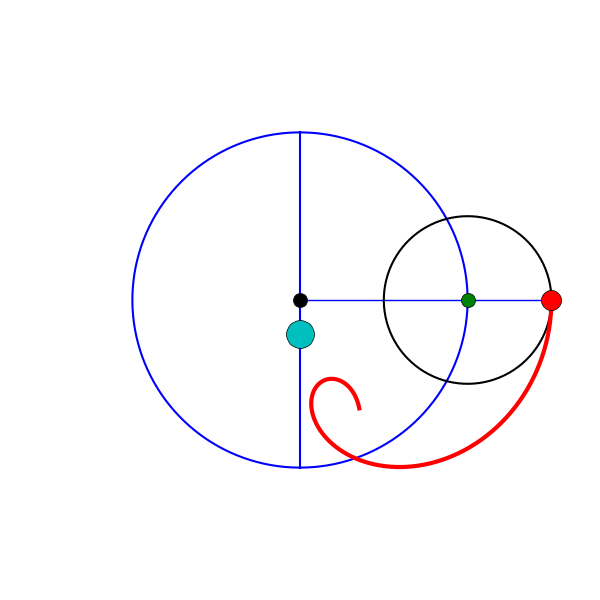Epicycles and the Information Bubble
While reading Dante’s Divine Comedy, I came across “epicycles.” These were used during the Ptolemaic era under the geocentric model — the idea that all celestial objects revolve around the Earth — to explain (or more accurately, describe) the motion of the planets, especially their peculiar, looping paths, where they sometimes appear to move backward. Like this example for Venus:

Here’s what epicycles look like:

- Animated model - https://www.108hei.com/wp-content/uploads/2022/09/2022091511315754.gif
- Here you can play with the model - https://www.foothill.fhda.edu/astronomy/astrosims/ptolemaic-system/
From what I understand, despite the complexity, this model could actually make fairly accurate predictions — though as new data came in, more cycles were needed, making the model increasingly complicated.
In this context, Copernicus’ contribution was truly revolutionary. Before him, the geocentric model had been evolving for a long time and was independently developed by different civilizations. One key aspect of his breakthrough is that it eventually led to the concept of gravity.
Something new (or forgotten) for me was the realization that it wasn’t all just about religion. I used to think these planetary motions were explained away as “influenced by angels,” but in fact, there were precise calculations behind them.
I also tried to imagine — though it’s technically impossible, since modern scientific progress is tightly linked to the heliocentric model — what it would be like if the geocentric theory were still dominant today. How hard would it be to transition to another model, say heliocentrism, given the massive amount of information we’ve accumulated under the current paradigm? That data wouldn’t just disappear — search engines would still reference it, and all the LLMs like OpenAI’s, Claude, etc., would continue returning responses like, “The sun revolves around the Earth.”
How long would it take for the surrounding informational bubble to shift and reflect a new consensus? How prepared is our current system for integrating radical changes? Who would need to initiate those changes? If we’re talking about LLMs, would someone have to fine-tune them manually? Or wait for them to “learn” the new information organically? And if there’s too much conflicting information — are we going to need a committee just to sort it out? Or…?
Which leads to a bigger question: Are there any truly revolutionary, scientifically validated concepts right now that are being blocked from wider adoption by this kind of “informational plastic” — a non-degradable byproduct of the systems we’ve built?
It seems we now have to learn how to live with all this informational waste we’ve been generating — content that doesn’t rot. ——Translated with ChatGPT from original version—–